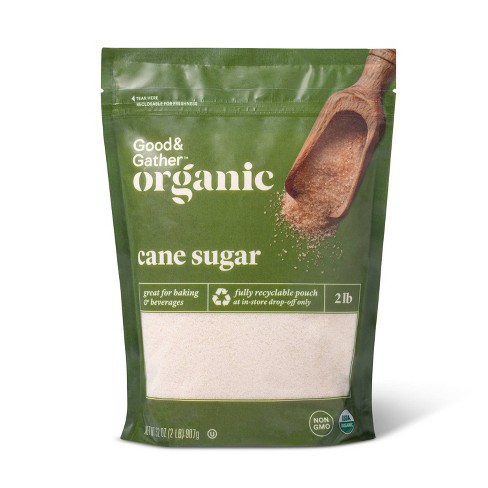The Difference Between Sugar and Cane: Understanding the Basics
The Difference Between Sugar and Cane: Understanding the Basics
Blog Article
Why Walking Stick Sugar Handling Chemicals Are Crucial for Modern Sugar Refining
The duty of walking stick sugar processing chemicals in contemporary sugar refining can not be overstated, as they are essential to enhancing both the effectiveness of removal and the general top quality of the last item. Agents such as phosphoric acid and details flocculants are used to remove impurities, resulting in sugar that not just fulfills customer assumptions but also sticks to sector criteria.
Duty of Handling Chemicals
The effectiveness of walking stick sugar processing hinges substantially on the critical application of handling chemicals. These chemicals play an essential function in enhancing the effectiveness and high quality of sugar extraction and refining. From the first phases of juice removal to the final purification steps, processing chemicals facilitate various important procedures.
In the removal phase, chemicals such as phosphoric acid and calcium hydroxide are used to maximize the explanation procedure, aiding to remove contaminations and suspended solids from the cane juice. This not just enhances the yield yet likewise guarantees the clarity of the end product. In addition, agents like flocculants help in the rapid settling of pollutants, thus streamlining the total process.
Triggered carbon and ion exchange materials serve to remove shade and smell, making sure that the polished sugar meets consumer high quality criteria. Therefore, the thorough selection and application of these chemicals are vital for attaining ideal end results in cane sugar processing.
Trick Types of Chemicals
Walking stick sugar handling depends on a range of crucial chemicals that help with each stage of manufacturing. These chemicals play necessary duties in making clear, bleaching, and purifying the sugar removed from walking cane.
One main category of chemicals consists of flocculants, such as polyacrylamide, which aid in the explanation process by promoting the aggregation and settling of impurities. In addition, calcium hydroxide is often utilized to neutralize acidity and assist in the elimination of non-sugar elements.
Bleaching representatives, such as triggered carbon and sulfur dioxide, are used to decolorize the syrup, causing a clearer final product. These chemicals aid get rid of color compounds that may influence the sugar's look and marketability.
Additionally, phosphoric acid works as a pH regulator throughout the handling stages, guaranteeing optimum conditions for the enzymatic activities associated with sugar extraction and purification.
Various other crucial representatives consist of edta (ethylenediaminetetraacetic acid), which chelates steel ions that can militarize undesirable responses, and sodium hydroxide, which aids in pH control throughout the refining procedure. Jointly, these chemicals boost effectiveness and make certain a premium walking cane sugar item.
Benefits for Sugar Quality
Typically ignored, using specific processing chemicals significantly enhances the overall top quality of cane sugar. These chemicals play a crucial function in refining procedures, making sure that the end product meets rigorous industry requirements for purity and taste.

Furthermore, refining chemicals assist in attaining a constant granulation and structure, which are essential for customer approval. By managing the condensation process, these chemicals ensure that the sugar crystals form uniformly, leading to a more appealing item that liquifies well in different applications.
Additionally, making use of these chemicals can boost the life span of cane sugar by reducing dampness absorption and microbial development. In general, the calculated application of processing chemicals is vital for providing top notch walking stick sugar that fulfills customer expectations and sector needs.
Environmental Influence Factors To Consider

Additionally, the energy-intensive nature of sugar refining, intensified by chemical usage, usually results in increased carbon emissions. This contributes to climate modification and increases worries relating to the sustainability of existing refining techniques. In addition, the sourcing of these chemicals might entail techniques that intimidate biodiversity, such as monoculture farming, which lowers the strength of farming ecosystems.

To alleviate these effects, sugar refiners are progressively checking out sustainable options and adopting best practices that linked here minimize chemical use. Applying extensive ecological monitoring systems can aid make certain that the refining procedure lines up with environmental criteria and promotes biodiversity. Inevitably, a well balanced method that prioritizes both sugar top quality and ecological stewardship is important for the long-term viability of the sugar sector.
Future Patterns in Refining
As the sugar industry faces the environmental challenges connected with standard refining methods, innovative techniques are emerging to boost both effectiveness and sustainability. One significant pattern is the adoption of environment-friendly chemistry principles, which focus on the use of safe, naturally degradable handling chemicals. This shift not only minimizes ecological impact however also addresses consumer demand for cleaner manufacturing approaches.
An additional promising growth is the application of innovative filtering technologies, such as membrane layer separation and adsorption procedures. These techniques boost the clarity and top quality of the sugar while decreasing the quantity of wastewater produced throughout refining. Additionally, the combination of electronic innovations, consisting of IoT and AI, is transforming operational performance by allowing real-time surveillance and predictive maintenance, hence reducing resource waste.
In addition, making use of by-products from sugar refining, such as bagasse and molasses, is acquiring grip. These products can be converted into biofuels or value-added items, adding to a round economy within the market. Jointly, these fads signal a change in the direction of more lasting methods that not only boost operational efficiency however likewise align with worldwide sustainability objectives, guaranteeing the future feasibility of sugar refining.
Verdict
Cane sugar processing chemicals are essential in contemporary sugar refining, dramatically enhancing the efficiency and high quality of sugar extraction. The calculated usage of these chemicals not only improves the purity and taste of the end product but additionally guarantees constant formation and texture. As the market progressively focuses on sustainability, the adoption of environmentally-friendly processing agents is likely to shape future patterns in refining, eventually leading to better products and expanded rack life for customers.

Eventually, a well balanced strategy that prioritizes both sugar high quality and ecological stewardship is essential for the long-lasting feasibility of the sugar navigate to this site sector.
Cane sugar processing chemicals are crucial in modern sugar refining, considerably boosting the performance and quality of sugar extraction.
Report this page